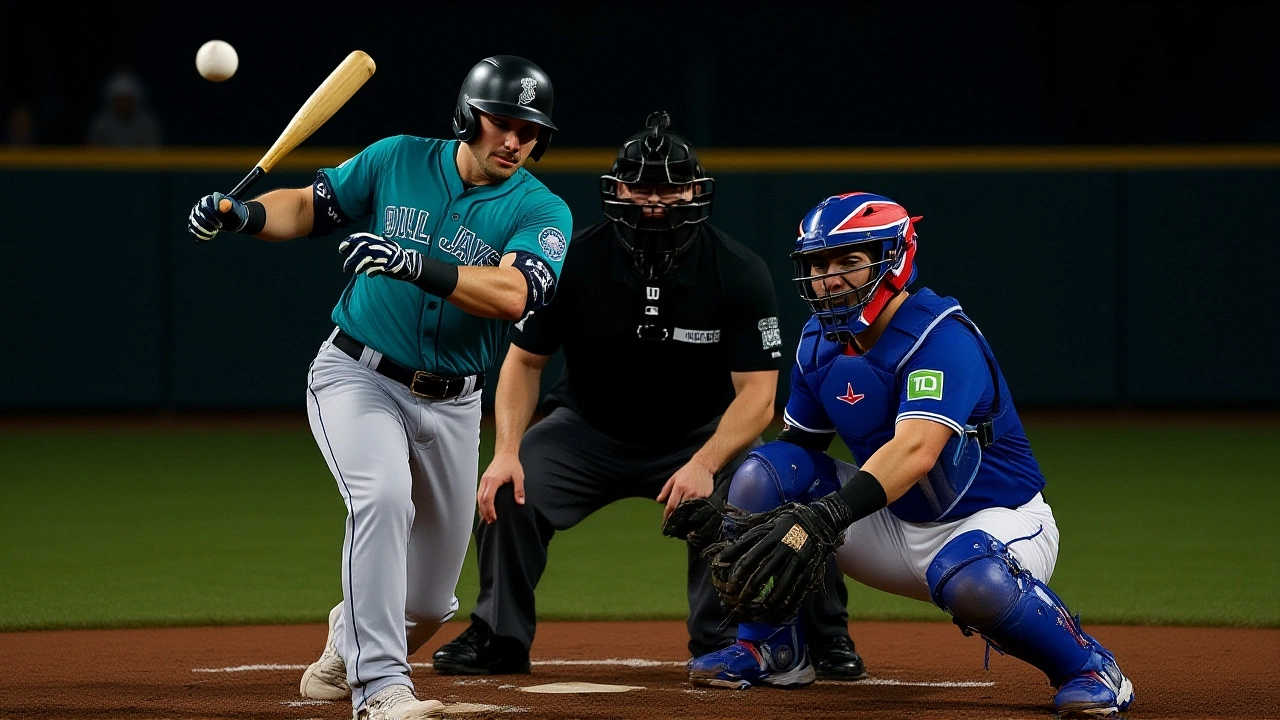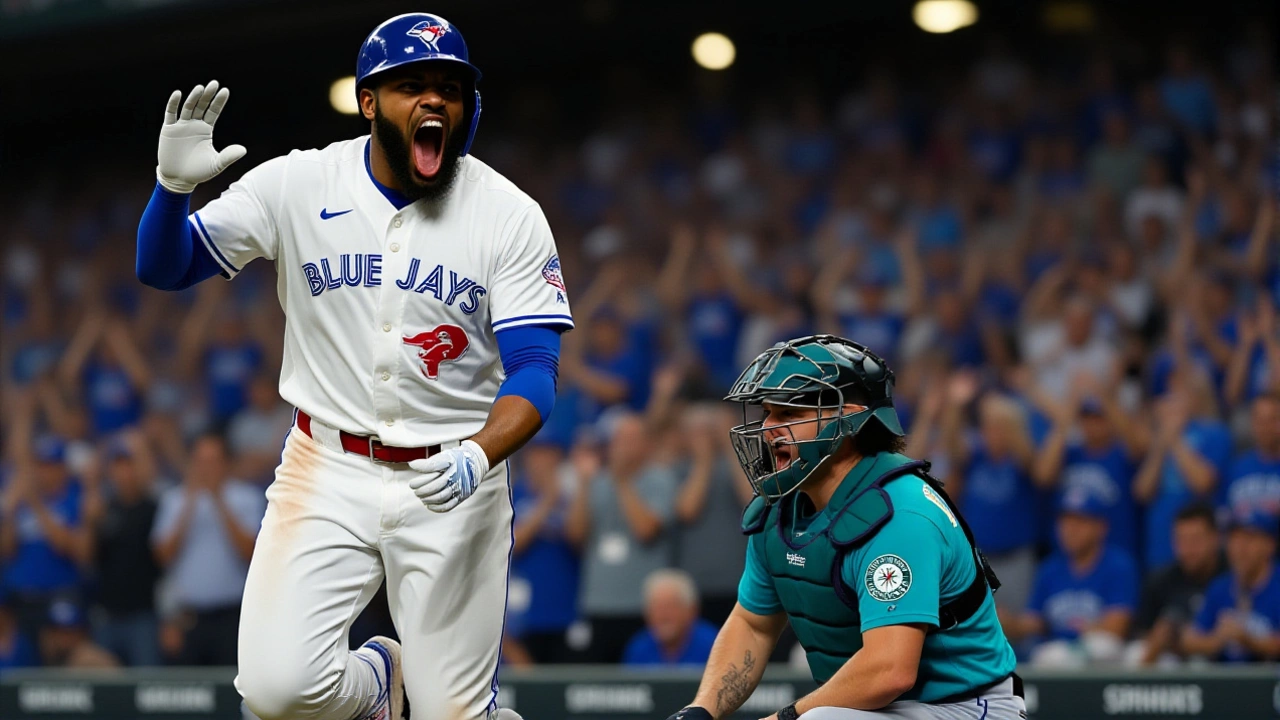When George Springer, the 35‑year‑old outfielder for the Toronto Blue Jays, launched a three‑run homer in the bottom of the seventh, the American League Championship Series Game 7 at Rogers Centre shifted into high gear, sealing a 4‑3 win over the Seattle Mariners. The victory snapped a 32‑year World Series drought for Toronto and set up a showdown with the National League champion on October 24.
- Final score: Blue Jays 4, Mariners 3
- Game‑winning blast: Springer, 3‑run HR, bottom 7th
- Key pitcher: Aaron Bieber (Seattle starter)
- Closer heroics: Jeff Hoffman, struck out all three batters in the ninth
- Series comeback: First ALCS team to lose first two home games and win the series
Series Recap and Historical Context
The ALCS began on October 16 with the Mariners stealing Game 1 and Game 2 on the Blue Jays’ home turf, a rare 2‑0 home‑field advantage swing. Toronto fought back in Seattle, taking Games 3 and 4, but fell short in Game 5, leaving the series at 3‑2. The win in Game 6 at home forced a decisive Game 7, making the Blue Jays the first club in ALCS history to lose the opening two games at home yet capture the series.
Back in 1993, the Jays capped a back‑to‑back championship run with Joe Carter’s iconic walk‑off. That triumph has loomed over Toronto fans ever since, turning each postseason into a quest to relive the early‑90s magic. The 2025 run resurrected memories of that era while cementing a new generation of heroes.
Game 7: Key Plays and Turning Points
Seattle opened the scoring in the first inning when Julio Rodríguez leapt to a leadoff double and later drove home a run, giving the Mariners a 1‑0 edge. The Blue Jays answered in the bottom of the second with a single and a stolen base, but Aaron Bieber, who had pitched eight solid innings throughout the series, survived a bases‑loaded jam by inducing a pop‑up on a full‑count.
The third inning saw Rodríguez launch a two‑run homer, his second off Bieber in the series, nudging Seattle ahead 2‑1. Toronto’s offense stalled until the seventh, when Springer, eyeing a 2‑2 count, cranked a fastball over the left‑field wall. The three‑run blast vaulted the Jays into a 4‑2 lead that would hold for the final two innings.
In the ninth, Jeff Hoffman entered with a one‑run lead and three outs needed. He struck out the side—Joe Murray, Luis Arraez, and newcomer Ethan Luna—becoming the first pitcher to record a three‑strikeout inning in a Game 7 since Calvin Schiraldi’s 1986 feat.
Player Performances and Statistics
Springer finished 2‑for‑5 with a triple‑count home run, a walk and two runs scored. His three‑run blast lifted his postseason home run total to 12, tying him with the franchise’s all‑time postseason leaders.
Rodríguez, the series’ offensive spark for Seattle, went 3‑for‑6 with two RBIs and a stolen base. He also posted a .375 slugging percentage, reinforcing his status as the AL’s rising star.
Bieber, despite the loss, logged 8 innings, 6 hits, 2 walks, and 5 strikeouts, yielding a 3.22 ERA over the series. His performance kept Seattle in every game until the seventh.
Hoffman’s perfect ninth recorded a 0.00 ERA for the night and lowered his postseason strikeout‑per‑nine innings (K/9) to 11.2, a career best in clutch situations.

Reactions from Teams, Owners, and Analysts
Blue Jays President Mark Shapiro praised his roster’s resilience: “We knew we could weather the storm. This win belongs to every fan who stuck with us through the ups and downs.”
Mariners President John Stanton remained optimistic despite the loss: “Seattle showed it belongs in the conversation. We’ll take the lessons forward, and the clubhouse is proud of the battle we put up.”
Analyst Mike Lind of Sportsnet noted, “The Blue Jays’ comeback is a textbook example of veteran leadership blending with youthful firepower. Springer's clutch homer was the X‑factor, but the entire roster bought in when it mattered.”
Fans in Toronto erupted, chanting “We want the ring!” while Seattle supporters gathered at T‑Mobile Park, hoping the pain would fuel next year’s pursuit.
What Lies Ahead: World Series Preview
The Jays now await the National League champion, the Los Angeles Dodgers, who clinched their series on a walk‑off double by Mookie Betts. Toronto’s pitching staff—led by ace Kevin Gausman and bolstered by Hoffman’s late‑inning swagger—will face a Dodgers rotation anchored by Julio Urias.
Key matchups to watch include Springer versus the Dodgers’ left‑handed reliever Blake Treinen and Rodríguez’s speed against Toronto’s outfield defense. If the Blue Jays can replicate the resilience that defined Game 7, they stand a strong chance of ending the 32‑year championship hiatus.
Frequently Asked Questions
How does this victory affect Toronto’s chances in the World Series?
The win gives Toronto momentum and confidence, especially after overcoming a 3‑1 series deficit. Their veteran core, highlighted by Springer's clutch hitting, will be psychologically bolstered, while the bullpen’s Game 7 performance shows it can handle pressure situations.
What were the pivotal moments that turned the game in favor of the Blue Jays?
Springer’s three‑run homer in the seventh created a two‑run cushion, and Hoffman’s strikeout‑perfect ninth sealed the win. Earlier, Bieber’s escape from a bases‑loaded jam in the second kept Seattle from extending its lead, while the Mariners’ missed opportunities on the road added to their downfall.
Who were the standout players for Seattle despite the loss?
Julio Rodríguez shone with a two‑run homer and three hits, demonstrating why he’s considered an emerging star. Aaron Bieber was solid on the mound, delivering eight innings of work, and his composure kept the game close until the seventh inning.
What historical significance does this comeback hold?
It marks the first time an ALCS team has lost the first two home games yet won the series, rewriting the playbook for postseason resilience. It also ends the longest World Series drought in Toronto’s franchise history, echoing the glory of the early‑1990s championships.
When and where will the 2025 World Series begin?
The World Series kicks off on Friday, October 24, 2025, with Game 1 slated for Dodger Stadium in Los Angeles. The series will alternate venues, giving Toronto a chance to host Games 2, 4 and 6 if needed.
